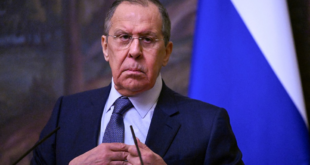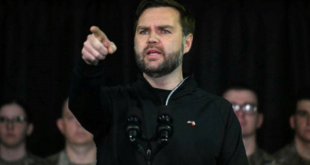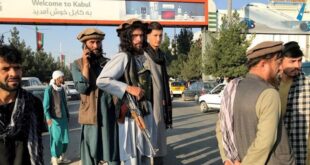WASHINGTON – A resurgent Taliban is back in charge over parts of Afghanistan, the nation’s chief intelligence official said Wednesday in an assessment that differed from the one made last month by Defense Secretary Robert Gates.
More than six years after the United States invaded Afghanistan, the Taliban has regained control of about 10 percent of the country, Director of National Intelligence Mike McConnell told the Senate Armed Services Committee.
Just a few weeks ago, Gates touted NATO military success in Afghanistan in 2007 and said the Taliban controlled no land.
“The Taliban occupy no territory in Afghanistan on a continuing basis,” Gates said during a Pentagon briefing in January.
Despite his less-optimistic assessment on that score, McConnell said the Taliban has suffered “significant degradation” in its leadership and is unable to successfully face off against U.S. and NATO forces.
He attributed an uptick in violence to the Taliban resorting to the terrorist tactics used by al Qaeda in Iraq — suicide attacks and roadside bombings.
McConnell also said the Taliban chooses other means to engage.
“They’ll fill in an area when we withdraw, or they will influence a village or region if our presence is not there,” he said.
He stressed the need not only for improved security, but also for better governance, noting the federal government controls only about 30 percent of Afghanistan, leaving the majority of the country under the influence of local tribes.
At the Senate threat assessment hearing, McConnell said the same safe haven in Pakistan that has enabled al Qaeda to regain strength has allowed the Taliban to “train, recruit, rest and recuperate and then come back into Afghanistan to engage.”
But he praised Pakistani authorities for helping the United States “more than any other nation in counterterrorism operations.”
However, Gen. Michael Maples, the director of the Defense Intelligence Agency, told the senators Pakistani efforts to confront al Qaeda and the Taliban in the ungoverned regions of the country have had little impact.
“Pakistani military operations in the Federally Administered Tribal Areas have had limited effect on al Qaeda,” Maples said.
Both Maples and McConnell expressed concern about al Qaeda’s continued effort to recruit and train operatives for terrorist operations against the United States and its allies and its stated desire to obtain weapons of mass destruction.
McConnell and Maples spoke on the eve of a Senate Foreign Relations committee hearing to discuss Pakistan with Deputy Secretary of State John Negroponte, the second most senior official at the State Department.
The committee’s chairman — Sen. Joe Biden, D-Delaware — just returned from the region and called the border between Afghanistan and Pakistan “a superhighway for extremists.”
“The main message I bring back is that Afghanistan is the forgotten war and Pakistan is the neglected frontier,” Biden said Tuesday.
“Afghanistan is slipping toward failure because it has never been a priority, and it has to become one.”
He said the Pakistani-Afghan border should be considered the central front in the war on terror.
 Eurasia Press & News
Eurasia Press & News



